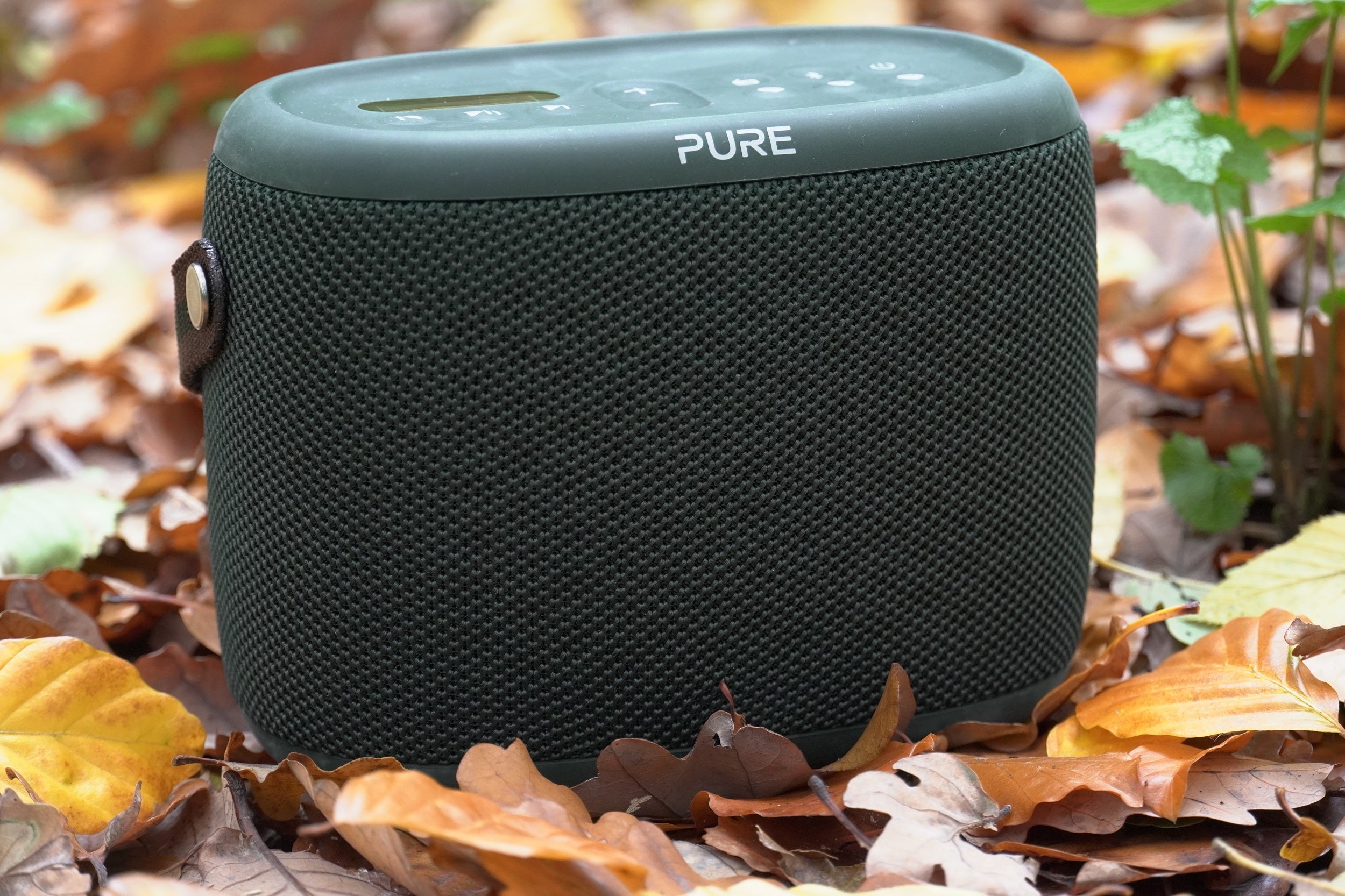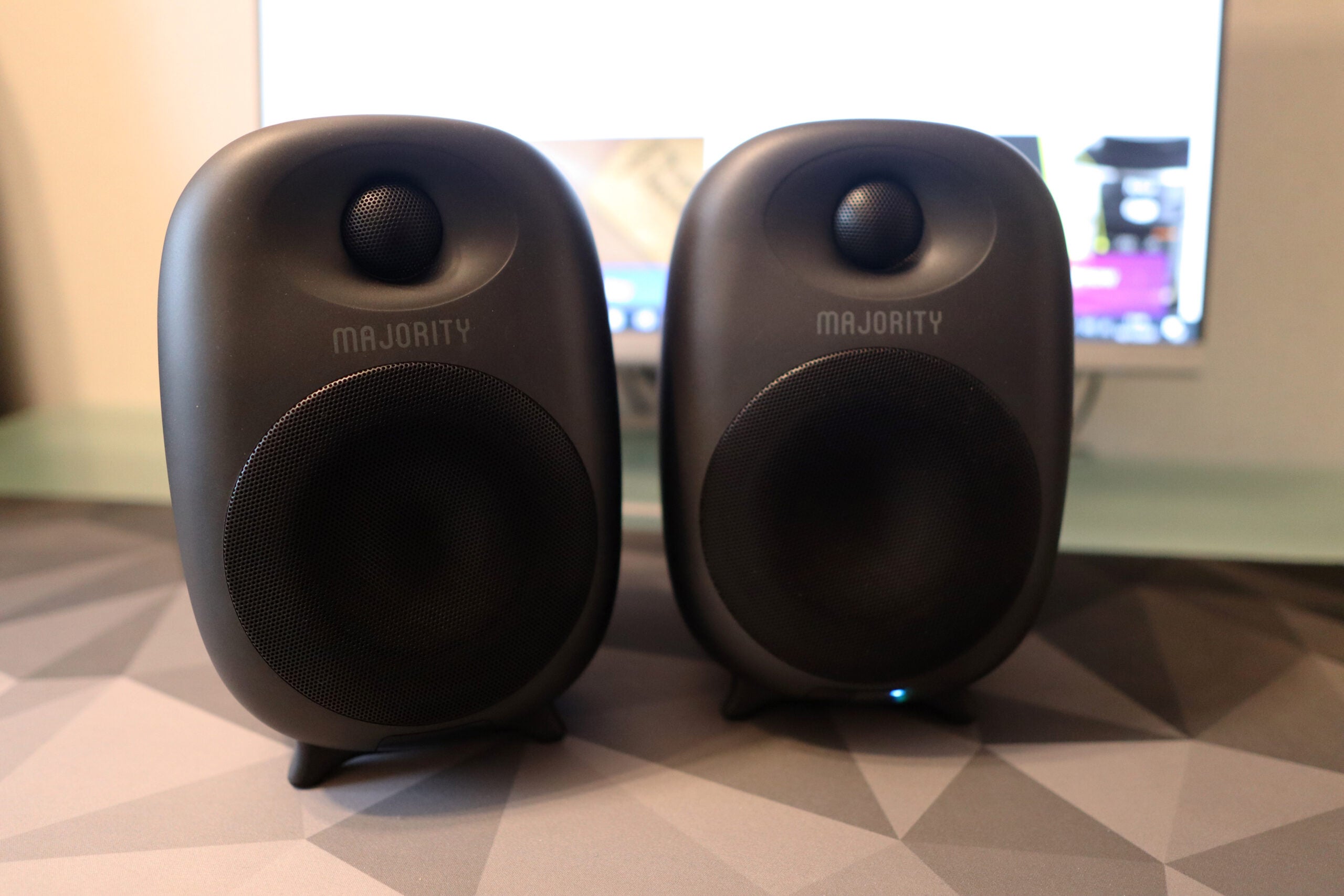Bang and Olufsen Beosound Balance Review
An extravagantly designed speaker with a price tag to match
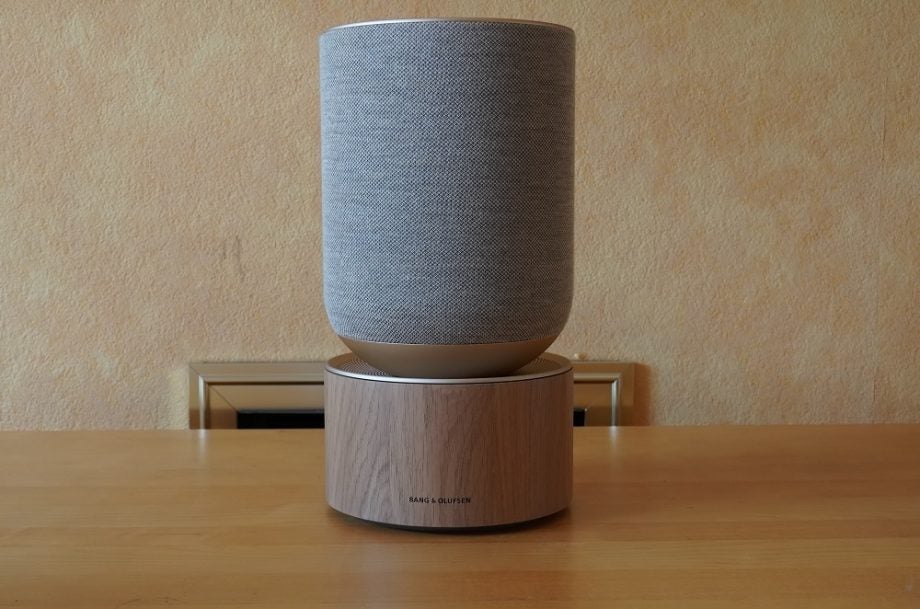

Verdict
The Beosound Balance is a wonderfully crafted speaker from B&O. While it sounds very good, its performance is positionally limited and consistency across all the sources can be uneven. Plus there’s a premium to be paid for that aesthetic.
Pros
- Extravagant design
- Big room-filling sound
- Google Assistant smarts
- Plenty of app customisation
Cons
- Extravagant price
- Compromised Tidal Masters performance with Chromecast
- Not the most dynamic performance
Introduction
What do you get if you shrink the Beoplay A9 speaker into one that can sit on a shelf? The answer is the Beosound Balance.
The Balance is extravagant both in terms of price and aesthetics: a wireless speaker for those who like their audio equipment to not only sound good but look good.
With a range of connectivity options – you can wring a tune out of the Beosound Balance from Bluetooth, AirPlay 2, Wi-Fi and built-in Chromecast – is this a triumph of form and function, or an expensive ode to Scandinavian design?
Availability
- UKRRP: £1750
- USARRP: $2250
- EuropeRRP: €2000
- CanadaRRP: CA$3000
The Beosound Balance was released in 2020 for a price of £1750 / $2250 / €2000/ CAD$3000. There is another variant of the speaker that omits Google Assistant smarts.
Design
- Elegant and simple
- Natural feel
- Weight requires substantial support
- Touch capacitive top surface
With the Balance, B&O has created a speaker that’s also a contradiction. It demands your attention but also wishes to fade into the background. It’s all smooth and sculpted features, and as such is not fit for the far less glamorous living room I’ve placed it in.
B&O collaborated with Benjamin Hubert from London-based British creative studio Layer Design on the form, and it’s a graceful one with a defined silhouette. It’s probably lazy to call the Balance ‘unmistakably Scandinavian’, but it’s strikingly minimalist for what is effectively a wireless speaker that sits on a shelf.
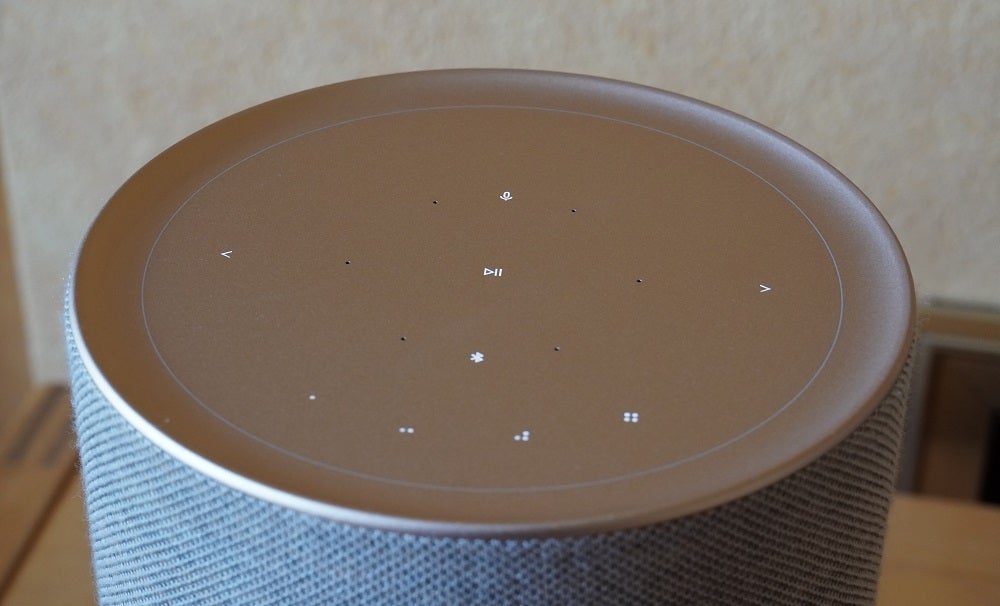
The base is made out of natural wood (solid oak), and the housing for speaker drivers is wrapped in a tubular knitted fabric, which means it’s a speaker that feels nice to touch, too.
On the top-plate are touch capacitive buttons for playback: four Google-related preset buttons, a Bluetooth pairing button, while volume control supports swipe gestures. Wave your hand like Obi Wan Kenobi close to the speaker and the proximity sensors light up the controls. It all works very well.
Towards the bottom of the speaker unit is an aluminium grill, with tiny circular holes punched in a Fibonacci pattern for increased acoustic transparency. This area can get a bit hot during operation.
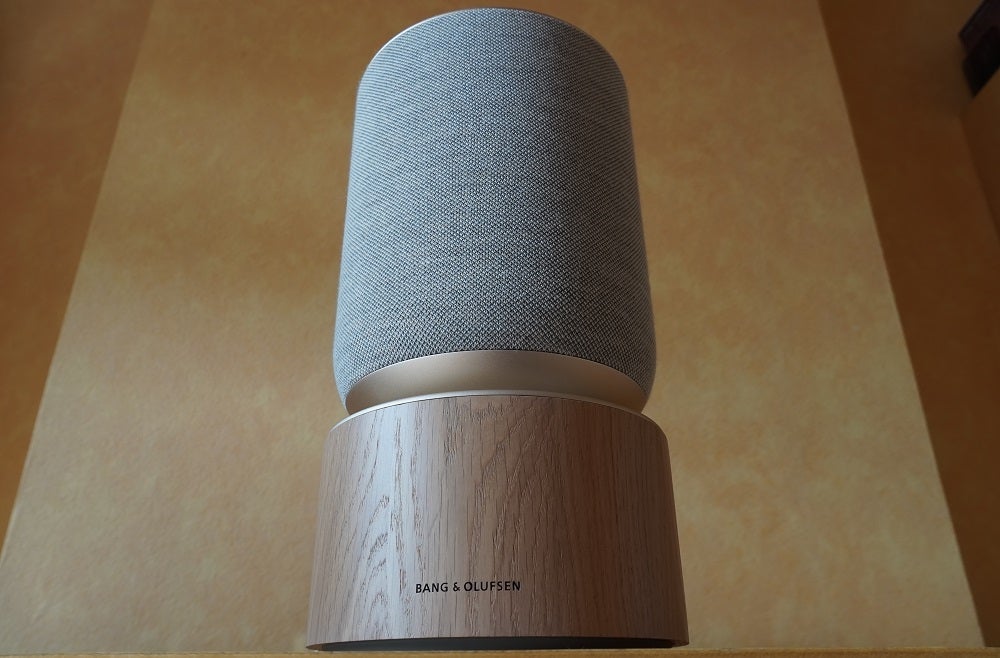
For the Balance, B&O has employed a seven driver configuration: two 2-inch full range drivers, two opposing 5.25-inch bass drivers and one ¾ tweeter for clearer treble reproduction. Around the back are two 3-inch full range drivers that act as ‘sound enhancers’.
The number of drivers, plus the solid oak base, explains the speaker’s 7.2kg weight. It’s best to pick a position and stick with it, otherwise you’ll be carrying it around the house like you would cradle a baby.
The Balance comes in Natural oak, Black oak, Nordic Ice and White Marble finishes. The former is best for lighter decors, while the latter suits more pensive and brooding environments, and wouldn’t look out of place in the Bat cave.
Features
- Smart, with plenty of connectivity
- Google smarts
- AirPlay 2 compatibility
- B&O companion app for additional features
The first Balance sample I had was faulty, plagued by update and connectivity issues. The second sample worked much smoother.
Beneath the speaker – which means having to inelegantly flip it over – is a recessed area for access to power, two Ethernet ports (if your Wi-Fi gets shaky or you want to hard-wire to another device), an analogue 3.5mm and USB-C input.
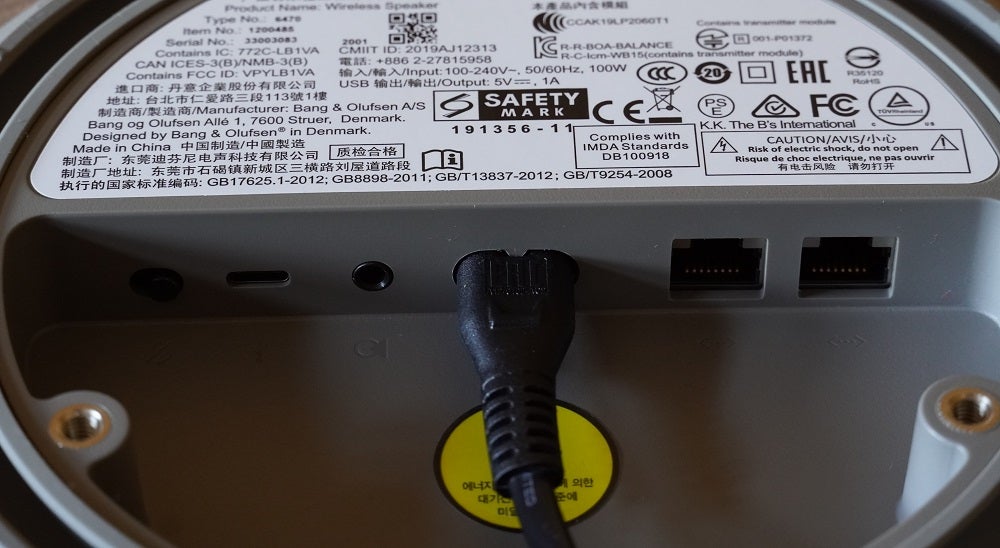
As befitting modern wireless speakers, the Beosound Balance has Google Assistant smarts. The speaker needs to be set up on Wi-Fi via the Bang & Olufsen app first, before the app whisks you away to Google Home.
If you haven’t used the Home app before, it’s a fairly painless process of finding the speaker, naming it and placing it in whichever room/group you prefer.
Google Assistant is always listening in the background (you can turn the microphones off). Wake the speaker from its slumber and she responds to your queries quickly. She can also hear you across the room, so you won’t often need to shout unless you’re playing music at ear-splittingly loud volumes.
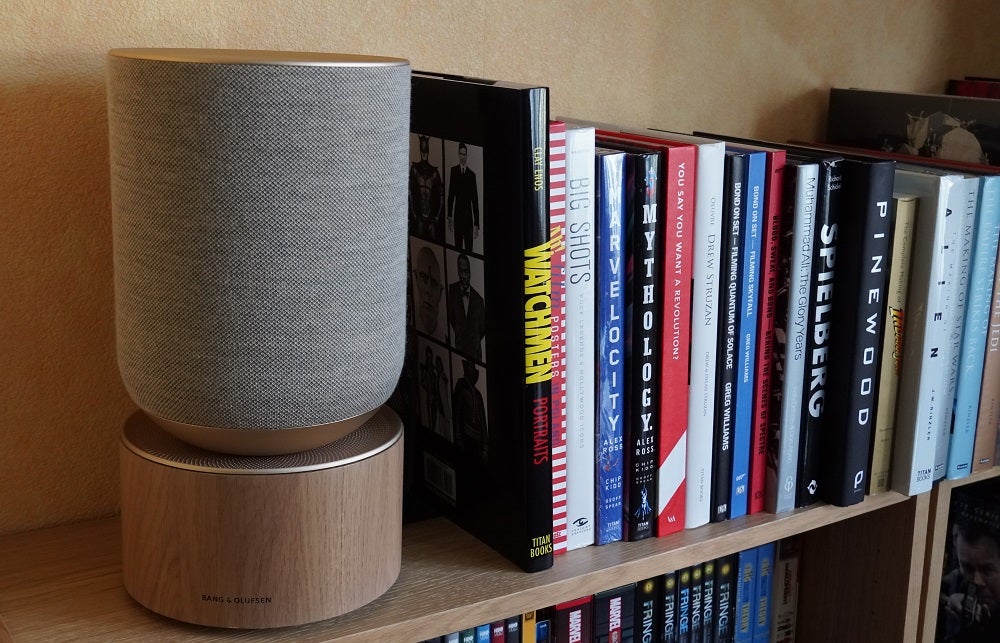
Compatibility with Google brings built-in Chromecast streaming, and for those with deep enough pockets to afford a second Balance, a stereo pair can be set up in Google Home. The speaker is available in a version without voice assistance, although curiously the price is the same.
With Airplay 2 there’s streaming, multi-room and Siri functionality through the iOS system. It also supports Spotify Connect, Wi-Fi (2.4 and 5GHz), as well as Bluetooth 5.0.
The B&O app is where you can play/pause/skip tracks, with plenty of customisation options available. You can alter listening modes, change the direction of the sound, edit equaliser settings (treble and bass), tweak the speaker’s ‘loudness’ or fiddle with specific product settings such as active room compensation, proximity sensors and automatic updates.
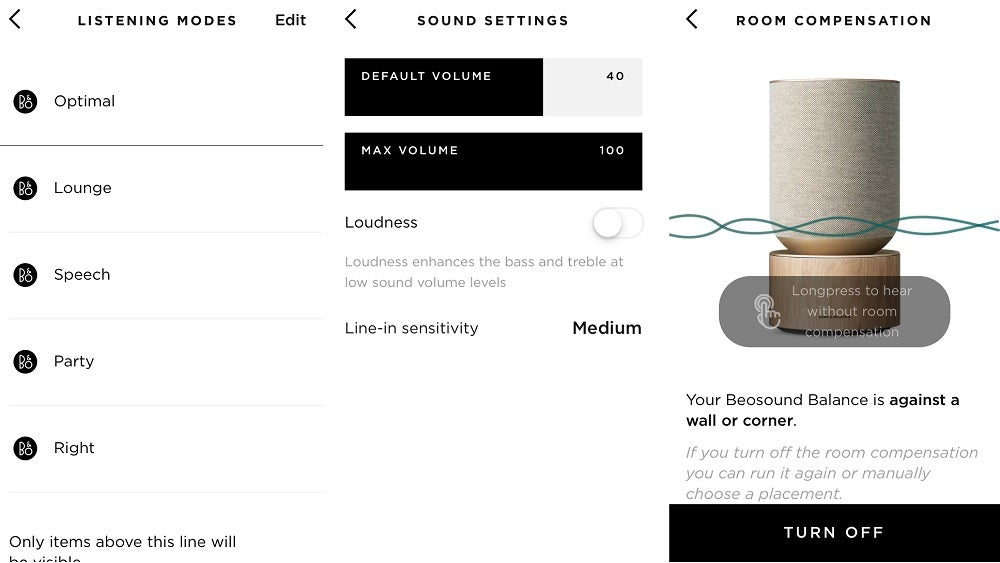
Active room compensation concerns the speaker’s placement, as the Beosound Balance is constantly examining its environment to determine how to deliver the best performance. Room compensation can be manually run within the app, too. The Balance will play a tone, and with the aid of beamforming technology, figure out where it’s placed and adjust accordingly.
In the several times I’ve used this, the Beosound Balance has said it’s placed next to a wall, despite being smack-bam in the middle of a room. It did get it correct once, but I suppose a broken clock is right twice a day.
The app is swift and responsive; it’s UI clean and easy to live with. Niftily, you can enable remote support should assistance be needed for a problem that can’t be solved locally.
Sound Quality
- Sounds as good as it looks
- Clear, detailed presentation
- 360 sound
- Not particularly dynamic
The Beosound Balance can fire audio out in a number of ways, and first on the agenda is how it sounds in 360 mode. This isn’t the most optimal listening mode, and is better suited to parties where the Balance is literally the centre of attention.
Nevertheless, playing Jerry Goldsmith’s End Title from Alien (Spotify via Airplay), and it’s a detailed, clear and natural sounding presentation; the undulations of the score lapped up by the speaker with a decent sense of dynamism. As it’s a rather tall speaker it’s not the widest of soundstages, and you won’t get the spread and depth a stereo pairing could provide. But walking around the speaker, the performance seemed to be consistent from wherever you stood/sat.
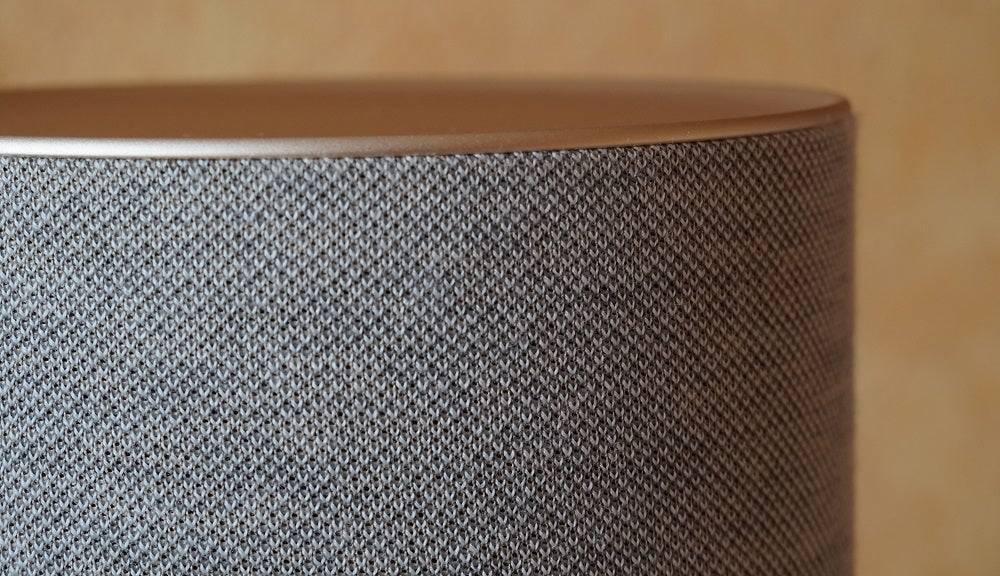
With another film track – Pacific Rim’s 2500 Tonnes of Awesome – and I expected some more heft and weight than I got. There’s not quite the punch or assertiveness in the mid-bass area, which leaves it sounding a little deflated.
Placed against a wall – it’s optimal listening position – and it feels weightier (not much though), as well as firmer and fuller. It’s also more agreeable when firing its directional at you. Chen Yi’s Duo Ye For Chamber Orchestra is rendered in an articulate manner, retaining sharpness and precision even in the track’s more frenzied moments. There’s a convincing tone to the instruments; the stop and starts are punctuated well, and dynamically it responds well enough.
It’s a fine performer with most genres you fling at it. Janelle Monae’s Can’t Live Without Your Love (Qobuz via Chromecast) shows the Balance is adept at giving vocals space within its compact confines. It can go pretty loud if you have a large space to fill, but for smaller rooms that’s not necessary.
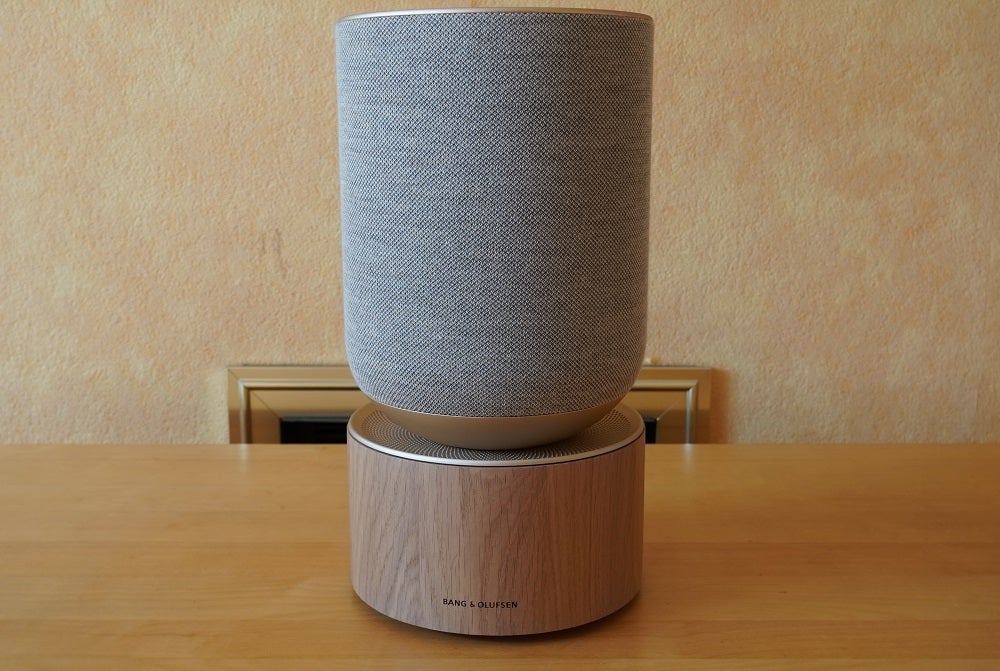
The performance isn’t consistent across all sources, and there’s an issue streaming from Chromecast on Tidal I’m not sure you can work around. AirPlay 2 and Bluetooth sound fairly consistent, but Chromecast is louder and less dynamic, amplifying any noise in a track.
Play a Tidal Masters track via Airplay and it’s delivered at its highest quality (24-bit/96kHz). Play the same track via Chromecast and it reverts to Tidal’s HiFi tier (16-bit/44.1kHz), and you immediately notice the drop in fidelity. While the Chromecast Audio device supports 24-bit/96kHz, simply streaming over Chromecast appears to be 16-bit maximum.
The Balance can also struggle with complicated tracks, as there isn’t the width to give instruments breathing space. Bass performance is fine, if somewhat gentle rather than impactful and forceful. The jump between low and high volume is quite sudden, which makes finding the right level tricky unless you’re fine annoying your neighbours and those in the same house with your frequent adjustments.
Latest deals
Should you buy it?
You need smarts in your expensive speaker The Balance has both feet in the lifestyle arena, and as such there’s a certain amount of convenience about its features.
You find the price eye-watering The word affordable doesn’t often appear in the Bang & Olufsen’s dictionary and the £1750 price is a big price to pay. As a result, the Beosound Balance won’t be for everyone
Final Thoughts
For those who appreciate a speaker’s design as much as audio character, the Beosound Balance is worth a place in your (luxuriously decorated) home. The Beosound Balance can sound wonderful at times. It’s not perfect, but it fits the bill of good sound and great aesthetics.
How we test
We test every wireless speaker we review thoroughly over an extended period of time. We use industry standard tests to compare features properly. We’ll always tell you what we find. We never, ever, accept money to review a product.
Find out more about how we test in our ethics policy.

